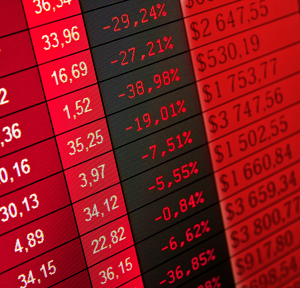Surveys
Investor Confidence Dips In November From Strong October - State Street

The confidence level shown in October was strong, proving hard to repeat in November. A key for the future is whether investors will be able to overlook worries about inflation in order to sustain confidence in markets, State Street said.
A global barometer of investor confidence from State Street, an
organisation which tracks the buying and selling habits of market
players, dropped in November from the previous strong month.
In November the Global Investor Confidence Index dipped to 110.5,
a fall of 3.6 points from October’s revised reading of 114.1. The
fall was led by the North American ICI. The Asian ICI rose by a
more modest 4.8 points to 108.1 and the European ICI fell by 1.4
points to 95.3.
The data, which comes from State Street Global Markets, is one of
the few measures that actually tracks what investors do with
their wealth each month, contrasting with polls of their
opinions. The index assigns a precise meaning to changes in
investor risk appetite: the greater the percentage allocation to
equities, the higher risk appetite/confidence is. A reading of
100 is neutral.
“Investor sentiment remained near its three-year high in
November, although the Global ICI eased off the strong levels
recorded last month,” Marvin Loh, global macro strategist, State
Street Global Markets, said. “The overall positive tone in risk
assets pushed global equity bourses to multi-year highs, led by
North America, with US equity investors looking past the start of
Fed tapering, higher inflation readings and more aggressive rate
hike expectations.”
“Investors’ willingness to look through surging inflation will be
key to maintaining overall investor confidence that has emerged
globally this year,” Loh added.
Earlier this week, economists at Credit Suisse described how they
expect inflation to remain elevated in 2022, bringing a return to
more normal monetary policy, saying that equities and real assets
remained the most attractive places to be, contrasting with
government bonds and most – if not all – forms of fixed
income.